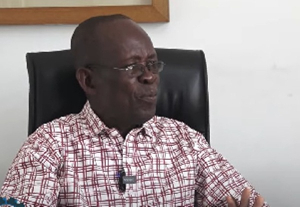The Electricity Company of Ghana made a net loss of 200 billion cedis from January to June this year, with exchange losses alone accounting for 198.8 billion cedis, due the depreciation of the cedis against major foreign currencies.
The Company said it is currently surviving out of magic and the only way of satisfying its 800,000 customers nation-wide is to increase tariffs to enable the corporation also pay its debt of 280 billion cedis to the Volta River Authority (VRA). Mr Kwame Sarah-Mensah, Chairman of the Board of Directors of the ECG disclosed this at the fifth in the series of regional award ceremonies for best and prompt paying customers of the ECG at Tema. In all 15 customers comprising five industrial, five commercial and five residential customers were honoured with certificates and gifts in the Tema Region, which was described as number one in revenue collection. Mr Sarah-Mensah said ECG is able to pay only six billion cedis out of the required 30 billion cedis a week to the VRA resulting in the accumulated debt of 280 billion cedis.
He said from January to August, this year the ECG paid a total of 196 billion cedis to the VRA from which it buys power, but the Company still owes VRA this huge amount. Out of 45 billion cedis expected weekly, the ECG is able to collect only 80 percent of this amount. Seventy percent of this (about 30 billion cedis) is used for energy purchases, 10 per-cent for staff remuneration, while the remaining 20 percent is for debt servicing, capital expenditure, maintenance and other expenses. Mr Sarah-Mensah said until ECG is allowed to charge economic rates, the Company will always owe the VRA, warning that, a time will soon come when the VRA can no longer supply power to ECG for distribution due to ECG's indebtedness.
Mr Musa B. Adam, out-going Managing Director of the Company said ECG has the monopoly in power distribution in the country, but it still finds it necessary to honour its customers. This is as an indication that the Company appreciates the way they consume electricity and settle bills promptly. He said 90 per-cent of ECG's customers fall within the commercial and residential category and these are main sectors where the Company meets problems with bill settlements. Mr Adam said tariffs given to the ECG are woefully inadequate and the Company is struggling with the Public Utilities Regulatory Commission to increase the rates
General News of Monday, 4 September 2000
Source: JoyFM












